Episodes
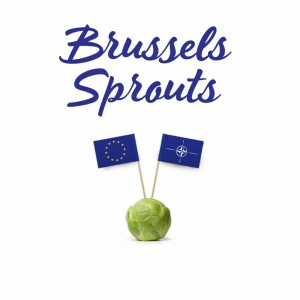
Thursday Apr 28, 2022
Thursday Apr 28, 2022
More than two months after Russia’s initial invasion of Ukraine, the war has now entered a second phase, with the two sides facing off in Ukraine’s eastern Donbas region. Looking forward, it remains unclear how the conflict will evolve as well as how it could eventually come to an end, given the numerous difficulties that stand in the way of achieving any sort of negotiated settlement. Mike Kofman and Jeff Edmonds join Andrea Kendall-Taylor and Jim Townsend discuss where the war now stands and what the future may hold for Ukraine, Russia, and the broader international community.
Mike Kofman is the Research Program Director in the Russia Studies Program at CNA as well as an Adjunct Senior Fellow at CNAS. His research focuses on Russia and the former Soviet Union, specializing in Russian armed forces, military thought, capabilities, and strategy.
Jeff Edmonds is a Research Scientist with CNA’s Russia Studies Program and an Adjunct Senior Fellow at CNAS. His research focuses on the Russian military, foreign policy, Russian threat perceptions, and Russian information and cyber operations.
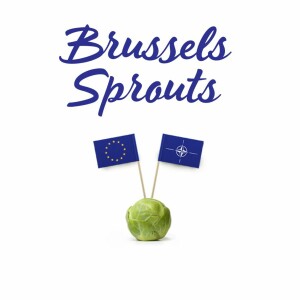
Thursday Apr 21, 2022
Thursday Apr 21, 2022
What can we expect from the final round of the French presidential election? The possibility of a Le Pen presidency poses major concerns for the future of the European Union and the transatlantic alliance, given her expressed desire to take actions such as leaving NATO’s integrated military command, seeking rapprochement with Russia, and enshrining the supremacy of French legislation over EU law. Another term for Macron, by contrast, would likely see a continuation of his strong pro-European and internationalist vision for France. Célia Belin and Ben Haddad join Andrea Kendall-Taylor and Jim Townsend to discuss this high-stakes political event, as well as what might unfold and what that might mean for France and the international community.
Célia Belin is a visiting fellow in the Center on the United States and Europe at the Brookings Institution. Her areas of expertise include transatlantic relations, U.S. foreign policy toward Europe, and French politics and foreign policy.
Benjamin Haddad is the senior director of the Europe Center at the Atlantic Council. He is an expert in European politics and transatlantic relations, and his work has notably advocated for transatlantic unity in the face of Russian aggression, greater European responsibility, and investment on strategic matters.
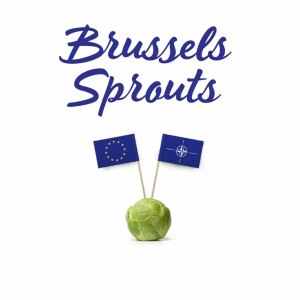
Monday Apr 11, 2022
Monday Apr 11, 2022
Will Finland and Sweden join NATO? Since Russia launched its unprovoked war of aggression against Ukraine in late February, European political and security dynamics have changed in profound ways. For Finland and Sweden, the invasion has ignited a new round of debate around the question of NATO membership, causing both countries to reexamine their longstanding policy of remaining outside the transatlantic military alliance. Despite this movement, no political decision has yet been made in either country, and obstacles may remain in the way of membership. Nevertheless, it appears that a seismic shift in foreign and security policy could be on the horizon for both countries. Anna Wieslander and Mika Aaltola join Andrea Kendall-Taylor and Jim Townsend to discuss what we might expect to see going forward.
Anna Wieslander serves as director for Northern Europe at the Atlantic Council. In addition to her role at the Atlantic Council, she chairs the Institute for Security and Development Policy in Stockholm and serves as secretary general of the Swedish Defense Association.
Mika Aaltola is the Director of the Finnish Institute of International Affairs. He is also a tenured professor of International Relations and European Union Affairs at Tallinn University in Estonia and holds the rank of docent at Tampere University.
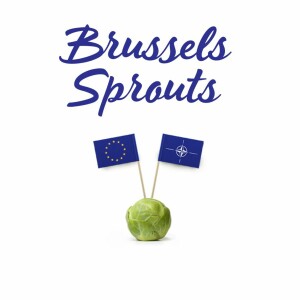
Wednesday Apr 06, 2022
Wednesday Apr 06, 2022
What does Viktor Orbán’s win in Hungary mean for the future of Europe? On April 3rd, voters in Hungary went to the polls for national parliamentary elections. Despite efforts by the opposition to unite around a single candidate, Viktor Orbán easily managed to win a fourth consecutive term as Prime Minister, as his right-wing Fidesz party retained the two-thirds super majority that has allowed it to drastically reshape Hungarian politics and society over the past twelve years. The European Union and the transatlantic alliance are certain to face major challenges from Orbán’s continued leadership of Hungary, including his consistent pro-Putin stance amidst the war in Ukraine, his ongoing efforts to undermine the rule of law, and his hardline stance on critical issues such as migration. Dan Kelemen joins Andrea Kendall-Taylor and Jim Townsend to discuss this and more.
Dan Kelemen is Professor of Political Science and Law and Jean Monnet Chair in European Union Politics at Rutgers University. He is the author or editor of six books, including The Transformation of Law and Regulation in the European Union, which won the Best Book award from the European Union Studies Association in 2013.
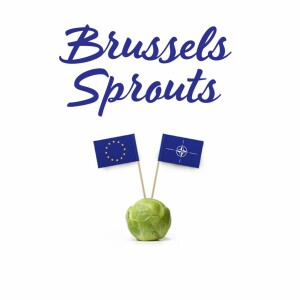
Thursday Mar 31, 2022
Thursday Mar 31, 2022
What role will China choose to play within the Russia-Ukrainian war? Beijing has notably refused to condemn Moscow for its military aggression, instead putting the blame on the West for sparking the crisis. Moreover, there are concerns that China may come to Russia’s aid by providing military assistance or helping it to evade sanctions, though it remains unclear whether China will ultimately act so blatantly in Russia’s favor. In any case, it is certain that the evolving relationship between Russia and China will be a key factor in both the current crisis and the emerging new world order more broadly. Jude Blanchette and Dave Shullman join Andrea Kendall-Taylor and Jim Townsend on the latest episode of Brussels Sprouts to discuss all of this and more.
Jude Blanchette holds the Freeman Chair in China Studies at the Center for Strategic and International Studies. Previously, he was engagement director at The Conference Board’s China Center for Economics and Business in Beijing, where he researched China’s political environment with a focus on the workings of the Communist Party of China and its impact on foreign companies and investors.
Dave Shullman is Senior Director of the Global China Hub at the Atlantic Council, where he leads the council’s work on China. David’s research focuses on China’s foreign policy and grand strategy, U.S.-China relations, China-Russia relations, and the implications of China’s rise for global order and the future of democracy.
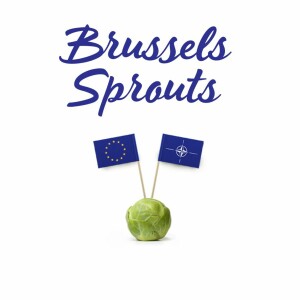
Tuesday Mar 29, 2022
Tuesday Mar 29, 2022
With the war in Ukraine now entering its second month, we are seeing few day-to-day changes on the battlefield. Russia’s focus appears to be primarily on the south and the east of the country, as it looks less and less likely that it will be able to muster sufficient forces to take Kyiv. Meanwhile, there has been limited progress in negotiations—while President Zelenskyy has said he is amenable to neutrality for Ukraine, there nonetheless remains a deep political divide when it comes to territorial integrity. Taken together, it seems that we are likely to see a long, drawn-out conflict with no real end in sight. Carl Bildt joins Andrea Kendall-Taylor and Jim Townsend on the latest episode of Brussels Sprouts to discuss all of this and more.
Carl Bildt is the co-chair of the European Council on Foreign Relations. He previously served as both Prime Minister and Foreign Minister of Sweden. Under his leadership, the government initiated major liberal economic reforms and negotiated Sweden’s accession to the EU.
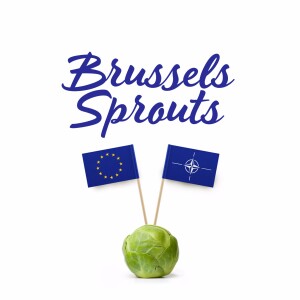
Friday Mar 18, 2022
Friday Mar 18, 2022
As the war in Ukraine continues into its fourth week, the picture on the ground has largely remained the same in recent days, with the Russian military making only minimal progress toward its objectives. Meanwhile, negotiations are continuing but look highly unlikely to produce tangible results in the next couple of weeks—Putin knows that the conflict will eventually be settled at the negotiating table, and Russia is therefore likely to increase the brutality of its tactics in the short-term with the aim of compelling Zelensky into concessions. Finally, the risk of an expanded conflict remains, demonstrated by Moscow’s recent attack on a training facility near the Polish border as well as its warnings that Western arms convoys could be considered “legitimate targets” for attack. Mike Kofman and Jeff Edmonds join Andrea Kendall-Taylor and Jim Townsend to examine the continuing war and potential trajectories.
Mike Kofman is the Research Program Director in the Russia Studies Program at CNA as well as an Adjunct Senior Fellow at CNAS. His research focuses on Russia and the former Soviet Union, specializing in Russian armed forces, military thought, capabilities, and strategy.
Jeff Edmonds is a Research Scientist with CNA’s Russia Studies Program and an Adjunct Senior Fellow at CNAS. His research focuses on the Russian military, foreign policy, Russian threat perceptions, and Russian information and cyber operations.
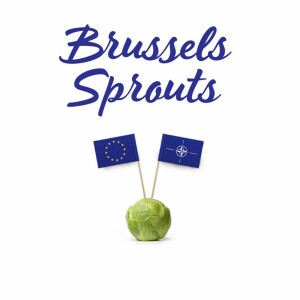
Monday Mar 07, 2022
Monday Mar 07, 2022
One week after Russia launched its invasion into Ukraine—an invasion that President Biden condemned as "premeditated and unprovoked" in his State of the Union address—Europe has become engulfed in its biggest war in decades. While Russia has expanded its assault on several key Ukrainian cities, a firm resistance from Ukrainian forces and civilians continues and the list of countries vowing immediate military aid to Ukraine continues to grow. On March 4, the Center for a New American Security hosted a panel featuring Andrea Kendall-Taylor, Richard Fontaine, Jeffrey Edmonds, and Michael Kofman to examine the unfolding crisis.
Jeffrey Edmonds is an expert on U.S. national security, especially as it relates to Russia. He works full time for CNA’s Russia Studies Program. Most recently, Jeff served as the Director for Russia on the National Security Council and acting Senior Director for Russia during the 2017 presidential transition. Prior to the NSC, Jeff served as a senior military analyst with the Central Intelligence Agency, covering Eurasian militaries.
Michael Kofman serves as a Senior Research Scientist at the Center for Naval Analyses’ Russia Studies Program, and a Fellow at the Kennan Institute, Woodrow Wilson International Center in Washington, D.C. His research focuses on the Russia and the former Soviet Union, specializing in the Russian armed forces, military thought, capabilities, and strategy.
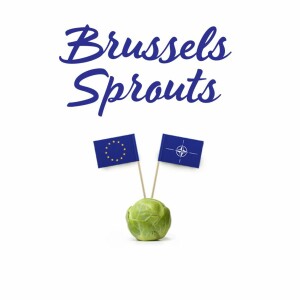
Thursday Mar 03, 2022
Thursday Mar 03, 2022
The United States and its allies have released an unprecedented and sweeping set of sanctions and export controls in response to Russia's invasion of Ukraine. This includes blocking sanctions on most major Russian banks, asset freezes on Russian elites, and a broad set of restrictions on exports of technology to Russia. Over the weekend, we saw the announcement of sanctions on Russia's central bank, along with removing select Russian banks from the SWIFT system and sanctions on Putin himself. On March 2, the Center for a New American Security hosted a panel moderated by Richard Fontaine and featuring Edward Fishman, Tom Keatinge, Emily Kilcrease, and Elina Ribakova to discuss what these new sanctions and export controls mean, how they will impact the Russian and global economies, and what to expect next in the economic domain from the United States and allies.
Edward Fishman is an Adjunct Fellow at the Energy, Economics, and Security Program at the Center for a New American Security.
Tom Keatinge is the Director of the Centre for Financial Crime and Security Studies at the Royal United Services Institute.
Emily Kilcrease is a Senior Fellow and Program Director of the Energy, Economics, and Security Program at the Center for a New American Security.
Elina Ribakova is an Adjunct Senior Fellow at the Energy, Economics, and Security Program at the Center for a New American Security, and she is the Deputy Chief Economist at the Institute of International Finance.
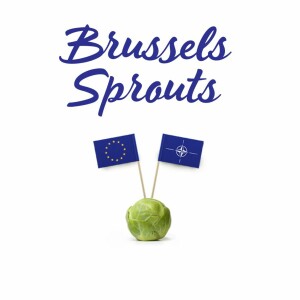
Wednesday Mar 02, 2022
Wednesday Mar 02, 2022
In response to the escalating crisis in Ukraine, Germany recently announced several historic policy shifts over the past few days. German Chancellor Olaf Scholz indicated that Germany would deliver weapons to Ukraine, reversing Germany’s long-held refusal to deliver weapons to a conflict zone. Furthermore, Scholz announced that Germany would plan to spend more than 2% of GDP on defense spending year on year and would create a €100 billion investment fund for the armed forces. Claudia Major and Daniela Schwarzer join Andrea Kendall-Taylor and Carisa Nietsche to assess this monumental shift in German foreign policy.
Dr. Claudia Major is head of the International Security Division at the German Institute for International and Security Affairs in Berlin (SWP). Her research, advisory work and publications focus on security and defense policy in Europe and in a transatlantic context, including NATO, EU, Germany, UK, and France. Previously, Claudia held positions at the Center for Security Studies at ETH Zurich, the German Council on Foreign Relations (Berlin), the EU Institute for Security Studies (Paris), the German Foreign Office (NATO desk) and Sciences Po Paris. Claudia is member in various boards, such as the Advisory Board for Civilian Crisis Prevention at the Federal Foreign Office and the German-British Koenigswinter Conference.
Dr. Daniela Schwarzer is executive director for Europe and Eurasia of the Open Society Foundations. Schwarzer is a renowned expert in European affairs and transatlantic and international relations. She is an honorary professor of political science at Freie Universität Berlin and a senior fellow at the Harvard Kennedy School’s Belfer Center. She has been a special advisor to European leaders such as EU High Representative Josep Borrell and to countries including Poland and France during the preparation of their EU Council presidencies.


